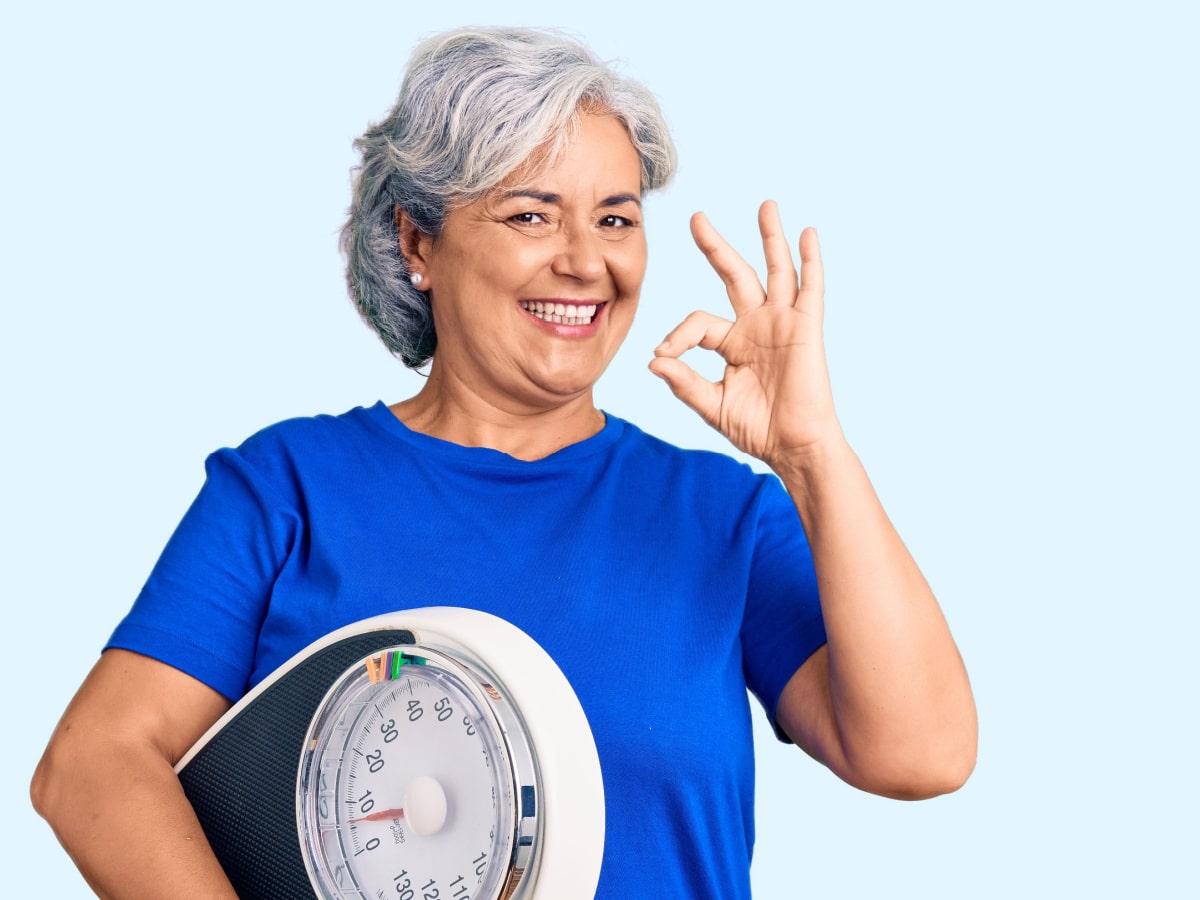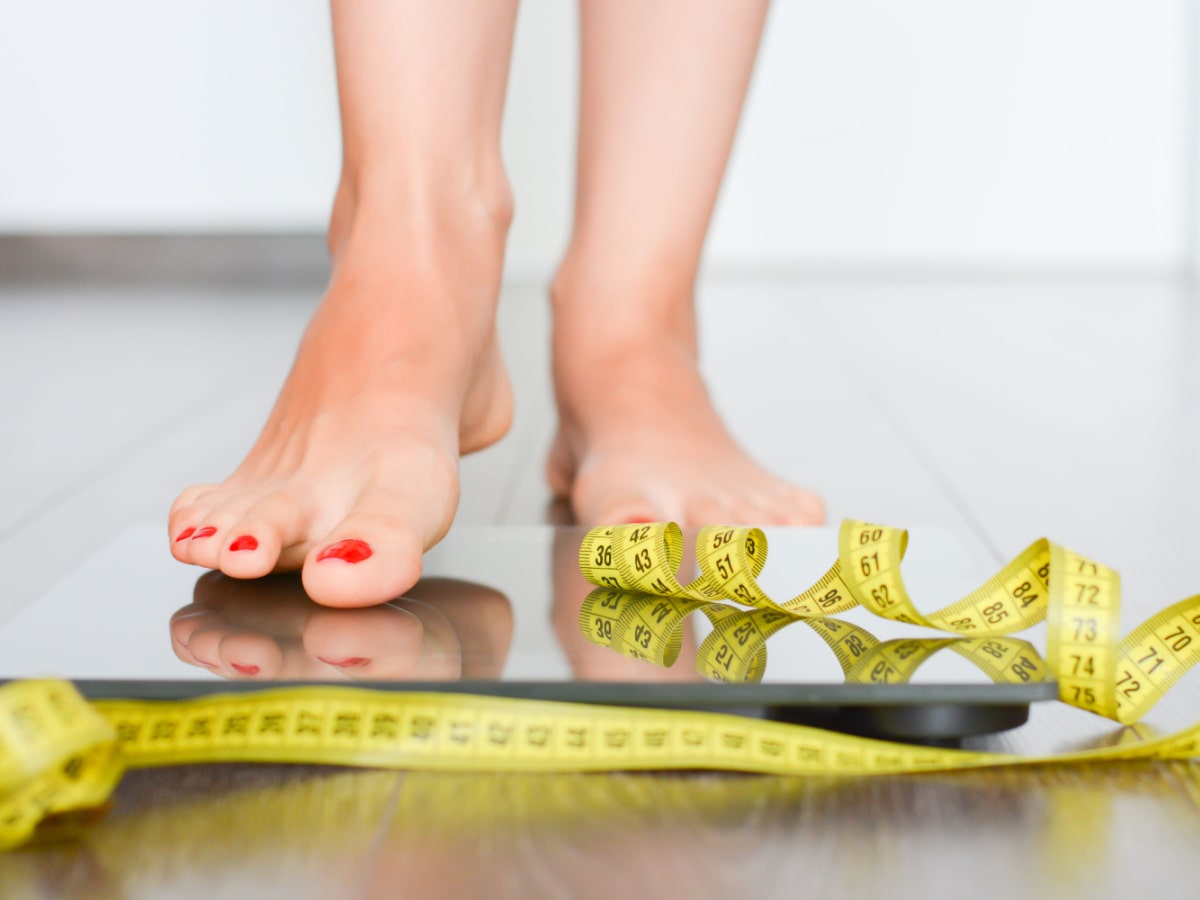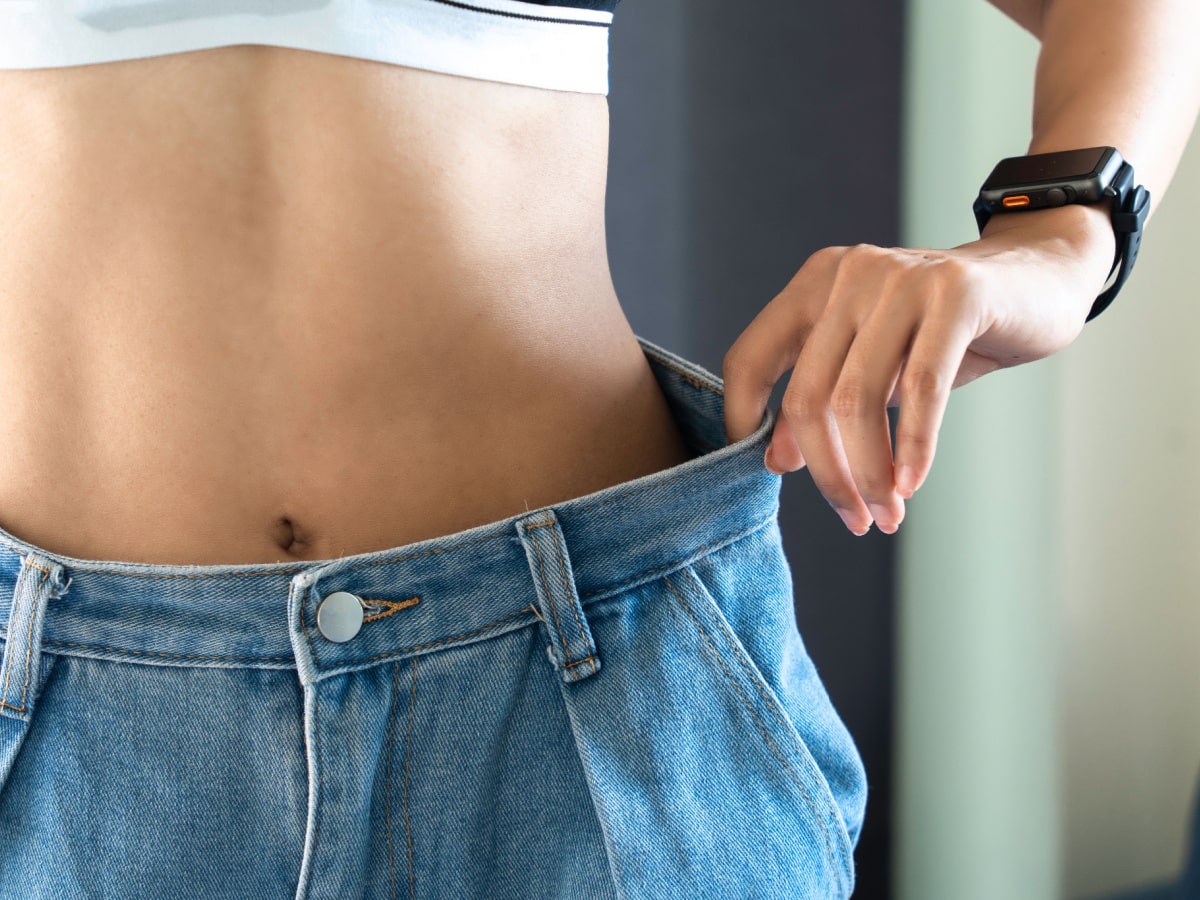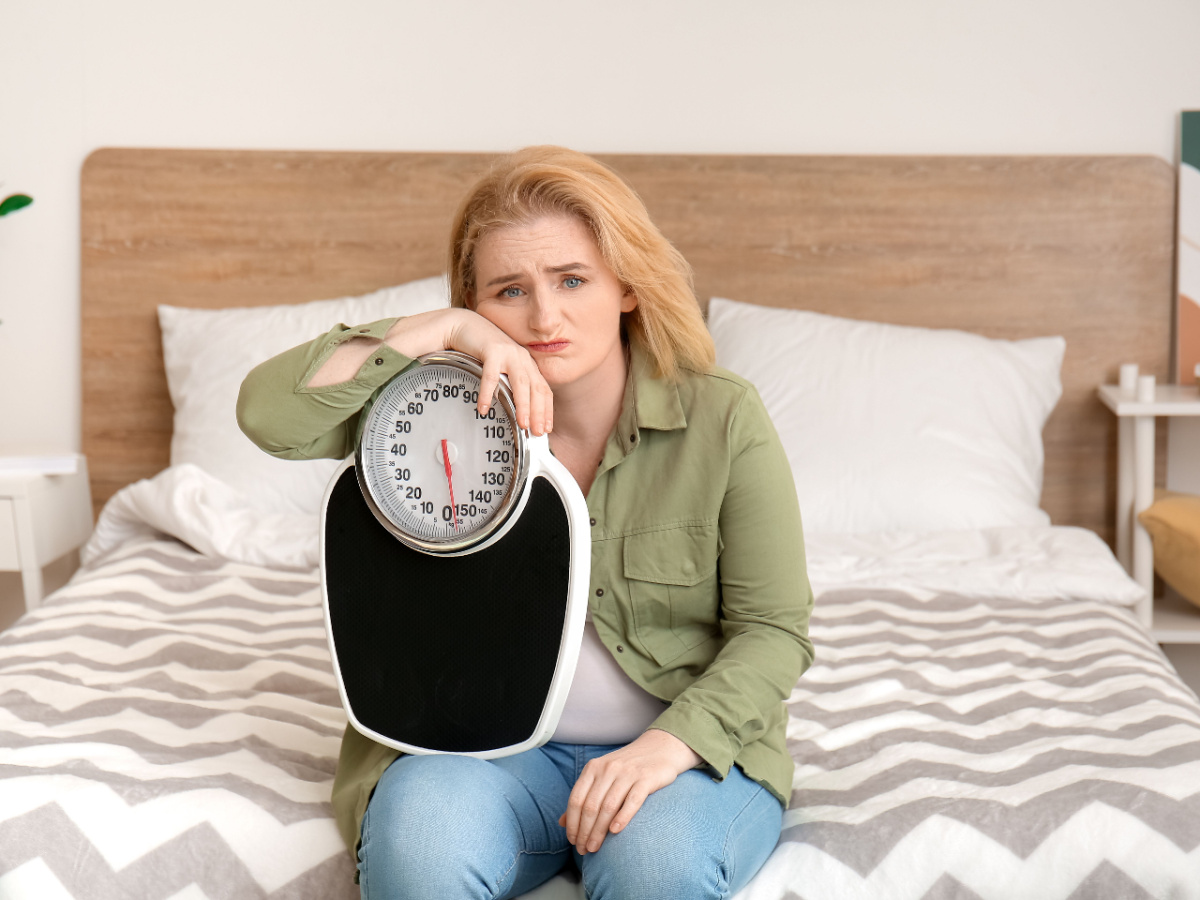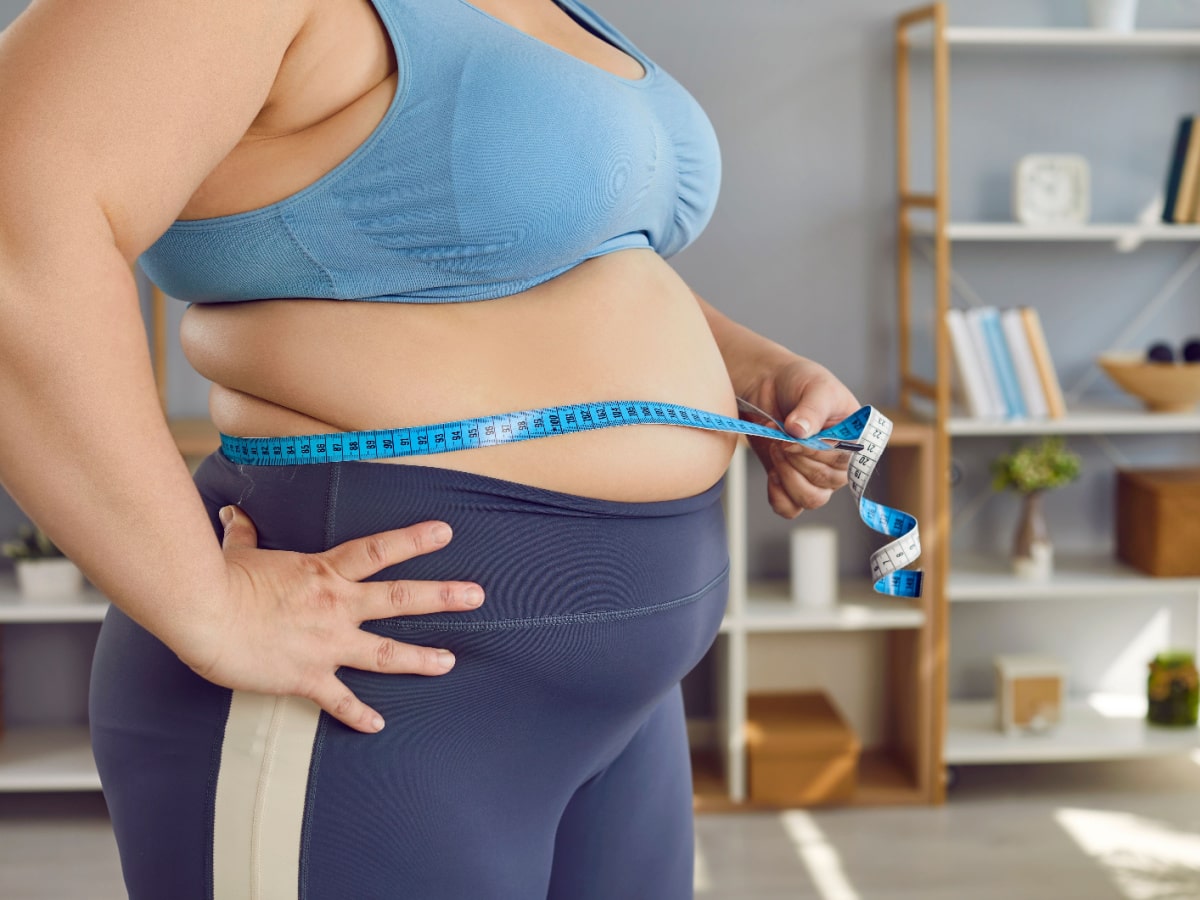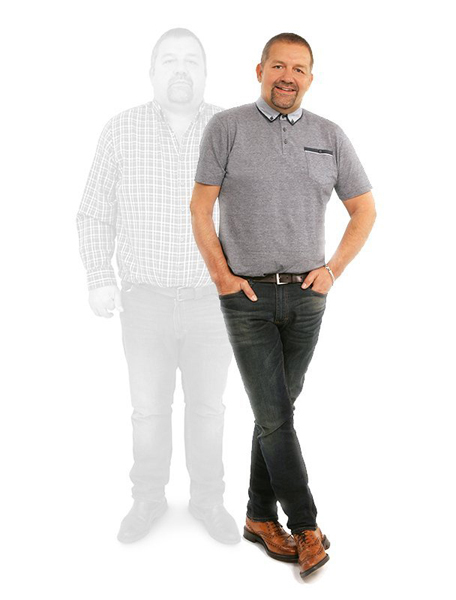Table of Contents
When we think about weight loss, we often fall into the trap of oversimplifying. If we end our week with the scale showing a lower weight, then we must have had some success in moving toward our weight loss goals. While this certainly can be a good sign and a job well done, in truth, it’s often more complicated. Weight loss can take various forms, from loss of water, muscle, and ideally, fat. Although each will result in the loss of body weight, their impact on our health is quite different. Before you set out on your weight loss journey, it is important to know the difference between the various types of weight loss and their effects on your health.
In this article, we will cover how weight loss as a general measure differs from fat loss, how it affects our health, and what you can do to achieve a healthy result.
Isn’t losing any body weight good?
When starting out on a weight loss journey, it can be easy to assume any lost weight is good for our health, and a sign that our strategy is working. Watching the scales report a steadily decreasing weight each week is a great feeling, and can help give us the motivation we need to continue. But, while this can be a helpful indicator of progress towards a healthy weight, it can just as easily be a trap.
Although weighing scales can help give us an idea of whether we’re losing, gaining, or maintaining weight, they can’t tell us why. This inaccuracy can cause a few problems, and potentially even scupper our attempts at losing weight. For example, a common occurrence during the first couple of weeks of many weight loss strategies is the sharp decrease in body weight, often to the tune of four, five, or even more pounds per week. Seeing this result on the scales can be a great feeling, but when this degree of weight loss tapers off several weeks in, it can be hard not to feel demotivated, and wonder whether it is worth continuing at all.
This scenario is very common, and perfectly showcases one of the main issues with simply measuring the increase and decrease of body weight. While weighing scales can show rapid weight loss during the first weeks, they can’t tell that it is water weight being lost. This is a common occurrence when adopting a new diet plan, especially if that plan replaces a large quantity of processed foods with organic produce. Fewer processed foods means less sodium, which in turn reduces water retention and leads to rapid weight loss in a short space of time. In addition to this trap, weighing scales also miss muscle loss, which can be the result of overly aggressive dieting and an excessive calorie deficit. While the former trap can be bad for motivation, unknowingly losing muscle can be very detrimental to our health, and should be avoided in most cases. To better make sure your weight loss is healthy, switching out your weighing scales for something more accurate is a good idea.
Also Read: Understanding Overeating
How to make sure your weight loss is fat loss
When actively pursuing weight loss, focusing on fat loss should be the main goal. Losing fat is the most beneficial to our health compared to other forms of weight loss, and targeting fat specifically can help you achieve your weight loss goals quicker and healthier. So, in order to make sure you’re losing fat rather than anything else, you’ll need to be able to properly measure body fat. For this task, weighing scales simply won’t cut it.
To accurately measure existing body fat, it’s best to use a measuring tool built with this purpose in mind. A body fat scale can fit the bill, especially if you’d prefer to have an easy method to use at home whenever you feel like a weigh-in. Unlike ordinary weighing scales, body fat scales try to measure the various components of our body and weigh them separately, rather than measuring raw weight. However, it isn’t easy to give a pinpoint reading, so most affordable body fat scales aren’t perfectly accurate. For more reliable accuracy, using skinfold calipers can be a good alternative, especially when used by professionals. Various healthcare and weight loss clinics offer skinfold caliper readings, which work by measuring fat at certain points on the body. These measurements can then give an estimate of your body fat percentage. If you’d prefer not to visit a clinic to have a reading done, it is still more than possible to do a skinfold caliper measurement yourself, though you will need some practice to ensure an accurate result. With either of these methods, you can make sure that your weight loss is due to fat reduction, rather than another cause.
Tips for losing fat while building muscle
With a bit of effort, it’s entirely possible to lose fat while building additional or maintaining existing muscle simultaneously. In fact, some of the most effective ways of burning body fat have the convenient side effect of building muscle, doubly improving your health in one go. Here are a couple of suggestions to help get you started.
Exercise
It’s the obvious solution, but still one that shouldn’t go unsaid. Exercise is easily the best method for maximising fat loss while not only just limiting muscle loss, but instead promoting muscle growth. Additionally, exercise improves our health in other ways, including improving blood flow, resting heart rate, energy, and more. If you want to reduce body fat and improve your body’s overall health, exercise is the way to go.
Diet to create a calorie deficit
When attempting to lose body fat, creating a calorie deficit is crucial for success. By burning more calories than we consume during the day, our bodies will need to look elsewhere for energy. Fat stores are among the first places our bodies will look to for this energy. Over time, this will steadily reduce body fat without requiring excessive dietary changes. You won’t need to completely cut out chocolate or the occasional takeaway from your diet, provided you can create a moderate calorie deficit overall. Removing a few hundred calories from your diet, which is often the equivalent of reducing snacking and having a healthier dinner, is often enough to start seeing results. Make sure not to go overboard when creating a calorie deficit, as this can have a detrimental impact on health.
Wrapping up
When it comes to losing weight, specifically targeting body fat should be the main goal in most cases. Reducing body fat tends to have significant positive effects on our health, from improving our heart and blood flow, to improving sleep quality. But, it can be hard to tell whether our diet or exercise routine is helping us lose fat, or whether the weight loss is the result of other means. To help make sure, using specialist tools, such as a skinfold caliper, is a great idea. If you still aren’t sure whether your weight loss is due to fat loss, or would like some assistance in your weight loss journey, consider consulting a nutritionist or a weight loss professional for advice.

